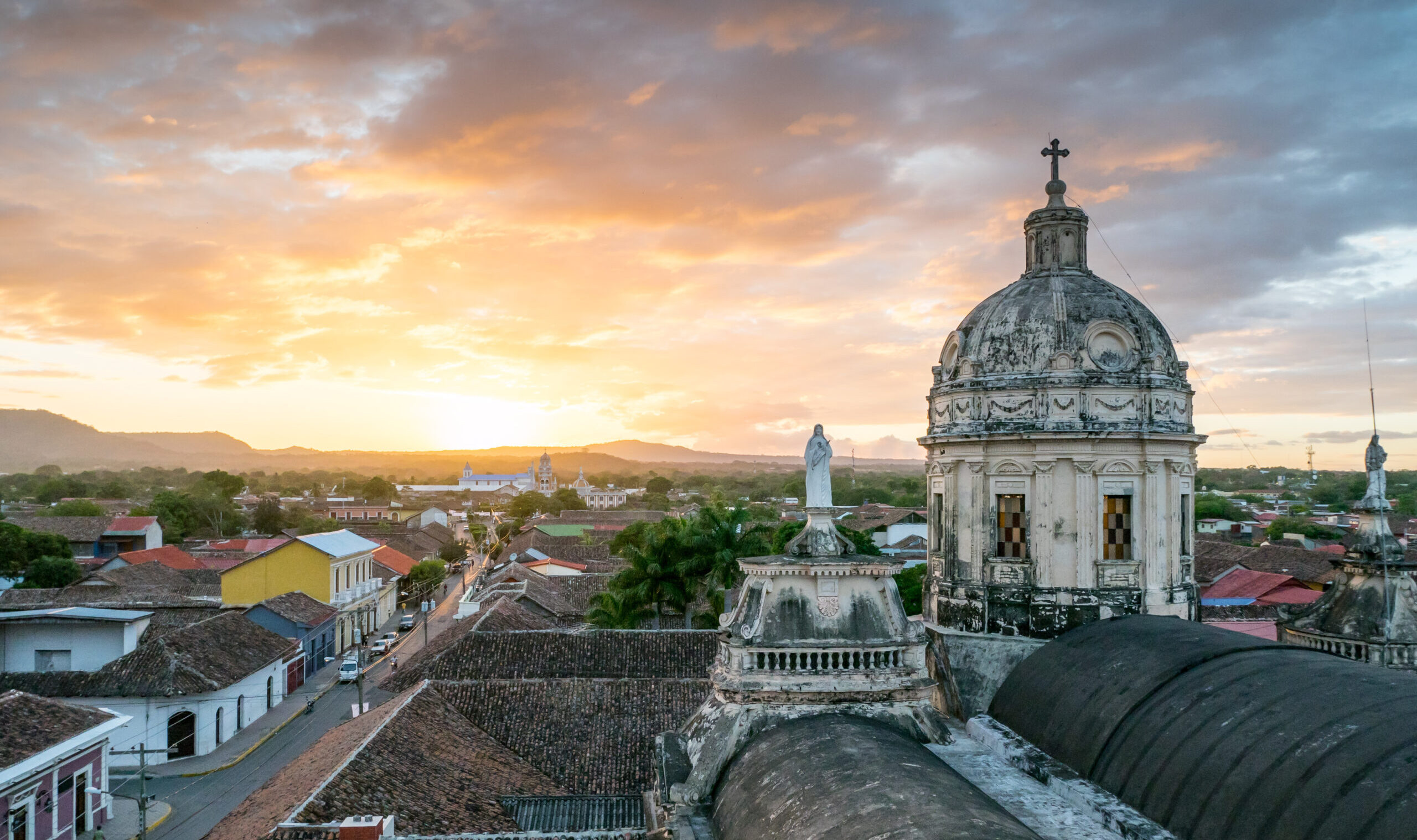Politics
Nicaragua provides an opportunity for us to build power in Latin America.

The U.S. is under invasion by millions of migrants in an assault that mocks its laws, tests its compassion, and costs its taxpayers over $450 billion per year. The next U.S. president must take decisive action to stop this flow and remove those who have arrived illegally. Voters in November will demand it. The question: how?
The answer may lie in Nicaragua, which could offer the U.S. a unique ability to address these crises, while solving many of that country’s own problems. By working with Nicaragua to prevent and reverse this illegal flow, the U.S. can empower the people of the second poorest country in the Western Hemisphere to break free from the vise-grip of violence, poverty and Marxism.
The U.S. can do this by extending Nicaragua a combination of financial incentives, democratic support and police powers to encourage its transition to a temporary U.S. protectorate, or possibly even territory. The benefits for both nations could be enormous.
In addition to offering a narrow choke point to block the flow of illegal immigrants, Nicaragua could provide a convenient transit center to facilitate the deportation and repatriation of those already here illegally. It could also serve as a location for removing those with pending immigration cases and providing temporary re-settlement of other illegal immigrants who might otherwise not be able to return to their country of origin.
To be sure, Nicaraguans would have to agree to this partnership through a national vote. In exchange, they would receive tens of billions to develop housing, infrastructure, and health, education, and social services; they would, perhaps, receive eligibilities for U.S. citizenship as well.
Despite the certain outcry from Ivy League grievance studies departments, this would be a partnership for change driven by real democracy and mutual interest. In the process, this cooperation would sideline a malign Marxist regime, led by President Daniel Ortega, whom the United Nations accuses of crimes against humanity and, assisted by Russia and China, presents a continuing threat to U.S. national security from our very own backyard. Nicaragua’s 2025 general elections, scheduled for a year after our own, could offer this opportunity.
Many Nicaraguans though have already voted with their feet. In 2022 alone, almost 200,000 Nicaraguans, or 3 percent of the country’s estimated population, passed illegally into the United States. Together with those both legally and illegally already here, it is likely that a full 10 percent or more of the country’s estimated population has already chosen to become part of the U.S.
This is poised to gain pace. According to a November 2023 study from AmericasBarometer, a project between Vanderbilt University and USAID, nearly 50 percent of Nicaragua’s estimated remaining 6.2 million people today also want to emigrate. In sum, a majority of Nicaraguans would want to be part of the USA if given the opportunity.
For his part, Ortega has now weaponized this human trafficking against the U.S. by bringing hundreds of chartered flights full of migrants from around the world into Managua, where they are volleyed northward and he gets a cut of the action. Could he be hoist by his own petard?
Nicaragua provides both an ideal location and manageable size to support this program. At 50,338 square miles, it is slightly smaller than North Carolina. However, at $17 billion, Nicaragua’s annual GDP is less than 1/40th of North Carolina’s and less than 1/10 of 1 percent of the entire U.S., which despite adversarial political relations, remains by far its largest trading partner.
The U.S. has a closely-intertwined history with Nicaragua and from 1912 to 1933 garrisoned a contingent of forces there to protect its national interests. Woodrow Wilson, at the request of the Nicaraguan government, even once sought unsuccessfully to make Nicaragua a protectorate. Bolstered by Teddy Roosevelt’s Corollary to the Monroe Doctrine and the Bryan-Chomorro Treaty, the U.S. held certain economic rights there until 1970, including a 99-year lease on the Corn Islands. Most important however was an option to build the Nicaraguan Canal, a long-sought project that would offer an alternative to the Panama Canal by linking the Atlantic to the Pacific, via the Caribbean Sea.
Under a new U.S.-Nicaraguan partnership, the U.S. could finally complete this project creating a boon for worldwide trade. Doing so would also alleviate the threat posed by potential disruptions of the Panama Canal, no longer under U.S. control. Moreover, it would also preempt current Chinese-led efforts to complete this passage while ending Russian dreams of establishing missile sites and naval bases.
Subscribe Today
Get daily emails in your inbox
Building a new canal would serve our national interest as well as generate a significant source of revenue. Almost 70 percent of the traffic passing through the Panama canal is either headed to, or headed from, from the United States. Current transit fees across the Panama Canal are approximately $400,000 per vessel, with some shippers paying many times more to avoid long waits. At almost 14,000 transits per year, the canal handles over $270 billion of cargo and generates over $2 billion of income.
As a Hispanic Texan and former commercial farmer, I have had the privilege to work with and count as friends many Nicaraguans who are here both legally and illegally. They are some of the best and hardest-working people I know. Both Americans and Nicaraguans deserve a better future.
In a country where the President arrested and jailed seven potential challengers to win his last re-election, democratic change can seem unimaginable. And without some vision, it certainly is. Next door in El Salvador, Nayib Bukele has shown the power of possibilities. Will a leader arise to make Nicaragua next?
Note: This article have been indexed to our site. We do not claim legitimacy, ownership or copyright of any of the content above. To see the article at original source Click Here











